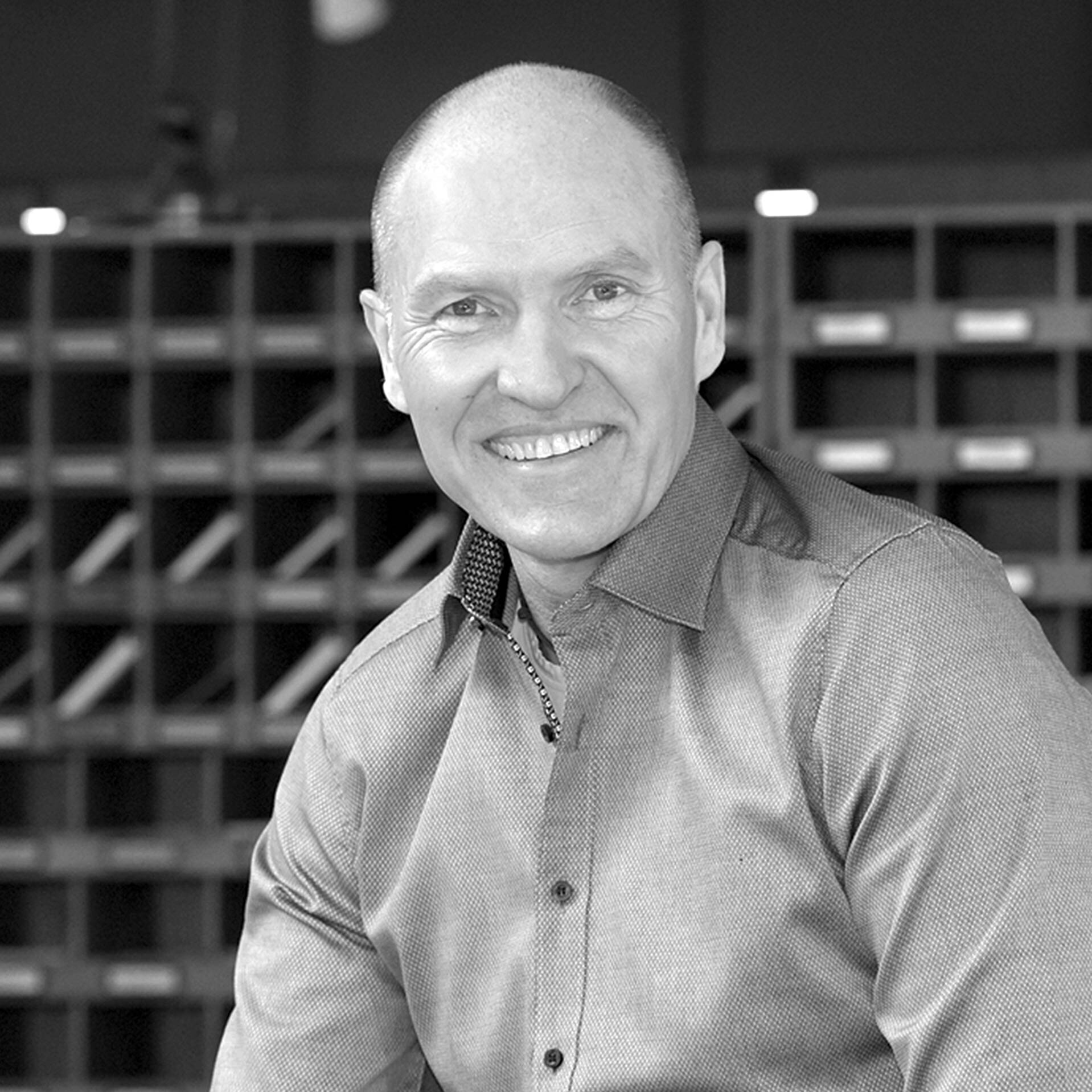Contributed by Bernd Reutemann
WHO IS BERND REUTEMANN?
He trained as a chef, gained a degree in business administration and went on to become an award-winning business consultant. Along with his sister, Gerda Reutemann, he successfully ran the Bischofschloss Mindness® Hotel in Markdorf (near Lake Constance) for 15 years. The two siblings are not only passionate hosts, but also managing directors of "Hogahelden", a consultancy that advises and generates ideas for the hotel and food service industry. Bernd Reutemann has already received numerous awards for his activities, including Baden-Württemberg's service provider of the year, 2008, conference hotelier of the year, 2012, and Germany's top-100 trainer, 2014.

IF YOU DO NOT SHINE ON THE INSIDE, YOU CANNOT SHINE ON THE OUTSIDE EITHER.
Every day the advertising industry launches new campaigns, for which experts think up slogans. Their goal is create a bond between customers and a company. But glossy advertisements can never provide what truly counts, namely, authentic closeness to the customer. Of utmost importance is the daily interaction with the company as experienced directly by customers, employees, or suppliers. A true favourite brand - also called a "love brand" - is built on the foundations of an honest provision of service. And this starts in the company itself. Because if you do not shine on the inside, you cannot shine on the outside either.
GOING THE EXTRA MILE:
The secret of small things
Admittedly, from one day to the next, it will not be possible to realize your goal of paying the small details the sort of attention they require. For this, you need a consistent system. Even in Bernd Reutemann's Bischofschloss conference hotel a feeling for the small gestures took a while to develop. The team had to first learn to go the extra mile without knowing if it was really worth it. But now - several awards down the line - the answer is a clear, yes, it is worth it!
4 DETAILS THAT MAKE THE DIFFERENCE
This fact may be well-known, but it still holds true: small things make the greatest difference. To tap into their potential is really not so difficult. Here are a couple of examples of how Bernd Reutemann and his team implemented this realisation in their hotel and food-service business:
1. Send a handwritten thank-you note after receiving an order. The main thing this costs is the will to do it. The monetary cost of less than a euro is nothing compared to the effect on the customer. He or she is no longer used to finding a handwritten letter in the post, and will be thrilled.
2. Place a sign under the hotel bed asking "Are you doing sport or looking for something?" This may not be a sensation, but it is a nice moment of surprise that has a very positive effect. Hardly any effort needs to be made either.
3. At the breakfast buffet, the boiled eggs are smiling at the guests. They have been painted with a smiley face!
4. In the lunch packet, place a card next to the tasty delights wishing the guest a successful day.
Every one of these details is completely simple in itself. But when used together they never fail to achieve their effect. They create emotion, atmosphere, and bonding. By now, the Bischofschloss conference hotel has achieved a certain measure of fame within the industry for its service ideas and positive moments of surprise. These small details generate goodwill when they are meant honestly. And a company that wishes to be seen as a favourite brand must be likeable. Because why should you give your money to someone who you do not like?
DO NOT MAKE YOUR GUESTS SUFFER, OTHER PEOPLE ARE DOING THIS WELL ENOUGH.
The message is simple: "If you want to be permanently successful, you have to go the extra mile." Be surprising, take the word "service" very seriously, as this is how you build up goodwill as a person or a company. It is the most important factor in a world where products and services are becoming increasingly indistinguishable. Above all, you must be able to sense and recognise where customers suffer or get bored. This often begins with superficial greetings, correspondence that is completely lacking in humour or emotion, and exaggerated bureaucracy. The list of customer grievances is long. Even so, it offers you a lot of possibilities of being better than just good.
It is just as bad to be liked and seen as incompetent as to be disliked and seen as competent.
Bernd Reutemann
WHAT IT TAKES TO BE A LOVE BRAND
It is just as bad to be liked and seen as incompetent as to be disliked and seen as competent. The love brand strategy only works when competence, quality, and goodwill combine into a brand identity. If it works, a firm foundation has been laid for a long-term customer and employee bond with emotional added value.
ARE YOU ACTUALLY LIKEABLE?
Do you have what it takes as a person or company to become a love brand? There are approaches and strategies that strengthen the likeability of your brand. The brand account model helps you to evaluate how you present yourself as an actor on the market.
Do not just dwell on your external perception, however; take a look inwards as well. How do your employees perceive your quality as an employer? Are you or your company a love brand for the employees, or just a means to an end? Think about where you might be able to positively surprise your customers or employees. How does your extra mile look?

- Turn a new employee's first day on the job into a day to remember. Introduce rituals, for example, a personal welcome gift, or assign a sponsor.
- Give positive feedback.
- The employees, and of course you as well, gather their positive impressions on a good news wall.
- Arouse the desire to win.
GOODWILL IS A PROFIT
A person who consistently goes the extra mile with a friendly smile on their face, and who surprises people positively, not only helps to strengthen customer bonds, but also starts a successful communication process. Employees receive positive feedback more often – directly from the customer or from people they come into contact with who have heard about the special service. Of course, it is the guests themselves who spread the word about the positive effect of the pleasant surprises, by telling others about their experiences. You as an individual or a company are not only viewed positively, you also arouse curiosity. This draws in more guests and even increases the turnover per guest – once the quality is right.
COSTUMER JOURNEY
– or: Be your own customer
Process optimisation sounds incredibly pretentious. But it does not mean anything other than regularly putting yourself in the guests' shoes, and looking at the company from their perspective. The result is more effective than just annoying the customer with questionnaires. Important here is a sense of empathy. If you have this, you will recognise the areas that need improvement. Then you will be able to shape the contact points with your customers positively. Rules and processes will help you. And even a tough area like accounting can hold pleasant surprises. Here are two examples from the Reutemann hotel business:
"Customers who pay the bill within four days receive a thank-you card for the quick payment. If the order volume is above 3,500 euros, we send an apple pie to the customer's office seven days after processing. This costs at most two percent of the turnover. But we strengthen the bond at this point and give the customer an especially positive experience."
These examples make clear again the principle of small things: model the contact points consciously... this makes you liked. Shape you processes clearly and reliably. Keep optimising your processes and never stand still. You only have to run if you start too late.



